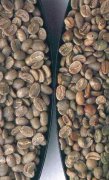Boutique coffee, specialty coffee, also known as origin coffee.
Single coffee, also known as origin coffee, in fact, mainly relative to mixed coffee, single coffee as the name implies is a single variety or single origin coffee beans, that is, unblended coffee.
The name of individual coffee is generally composed of country of origin, origin, manor, grade and variety. For example, the Blue Mountain No.1 in Jamaica refers to the first-class coffee beans produced in the Blue Mountain region of Jamaica.
We usually use utensils rather than coffee machines to extract individual coffee. If mixed coffee is to pursue the stability and uniformity of coffee taste, then single coffee exists in order to taste the most unique and personalized flavor. So blended coffee is generally cheap. Even the world's top blended coffee, such as ILLY, sells for less than 300kg in the Chinese market, but high-quality individual coffee is much more expensive. The famous Blue Mountain Coffee was purchased at about $120 a kilogram in 2010, while the world's best-known luxury coffee, LUWAK (Kopi Luwak), costs nearly $1000 a kilogram. The most exaggerated is the vomiting version of Luwak, which may cost $2000 a kilogram, which is too high to be seen in blended coffee.
In this era when people only know cappuccinos, individual coffee is actually the king of coffee, just like wine, it is wine, not vodka, that ends up in the hall of elegance.
Important Notice :
前街咖啡 FrontStreet Coffee has moved to new addredd:
FrontStreet Coffee Address: 315,Donghua East Road,GuangZhou
Tel:020 38364473
- Prev

10 steps for the detection of boutique coffee
1. Prepare a little (about 10 grams) freshly roasted and immediately ground coffee in a small cup. 2. Smell it and see its dry fragrance. 3. Pour in the hot water of about 95 degrees Celsius. Do not boil and immediately pour it into the coffee powder. Let it stand for about half a minute and then pour into the coffee powder after the temperature drops slightly. 4. Smell the aroma coming from the rising steam. 5. Place this cup of sample for three to five minutes
- Next

Fine coffee should be the standard of "good coffee".
Everyone's taste is different, and the taste of coffee varies from person to person. How can we say what is good and what is bad? How to judge? The taste of coffee is determined by the combination of sour and bitter taste, aroma concentration, astringent taste and mellow thickness, sometimes plus wine taste, mildew taste, fermentation taste and so on. For a person who doesn't like sour coffee, even a cup of sour coffee, yes
Related
- Beginners will see the "Coffee pull flower" guide!
- What is the difference between ice blog purified milk and ordinary milk coffee?
- Why is the Philippines the largest producer of crops in Liberia?
- For coffee extraction, should the fine powder be retained?
- How does extracted espresso fill pressed powder? How much strength does it take to press the powder?
- How to make jasmine cold extract coffee? Is the jasmine + latte good?
- Will this little toy really make the coffee taste better? How does Lily Drip affect coffee extraction?
- Will the action of slapping the filter cup also affect coffee extraction?
- What's the difference between powder-to-water ratio and powder-to-liquid ratio?
- What is the Ethiopian local species? What does it have to do with Heirloom native species?

